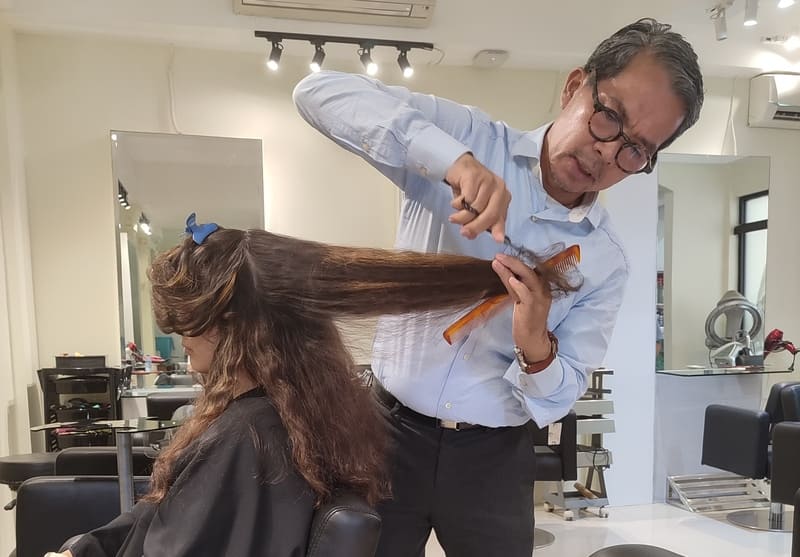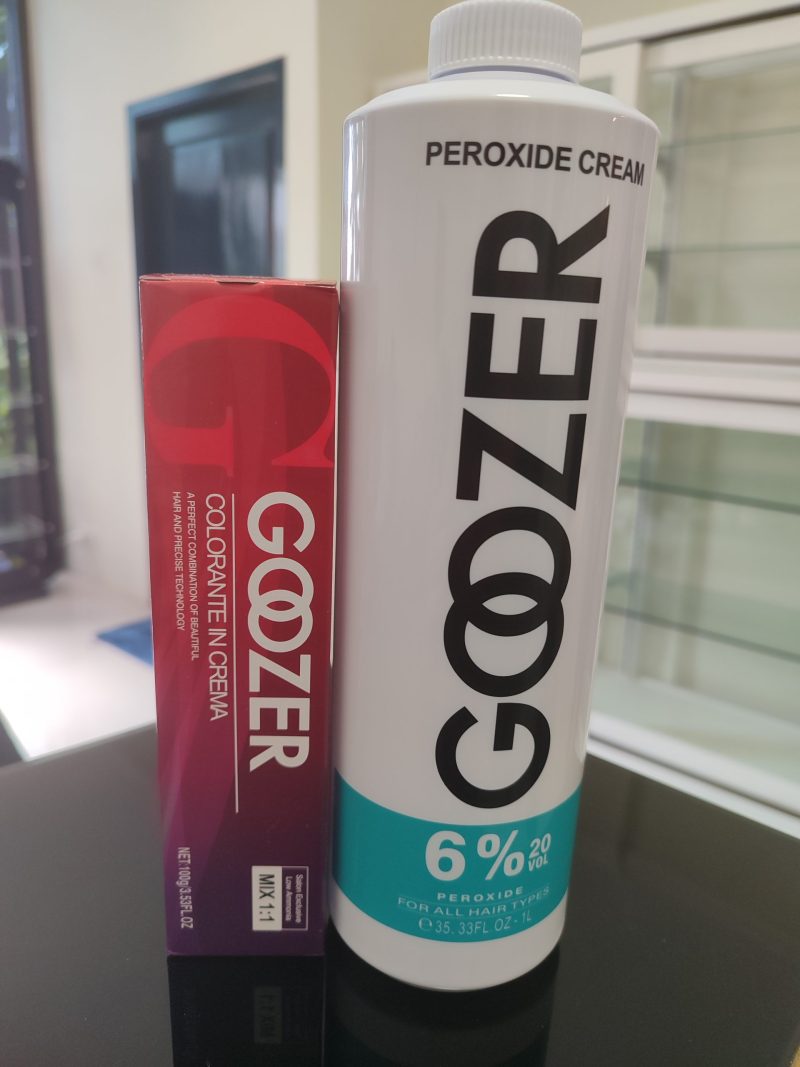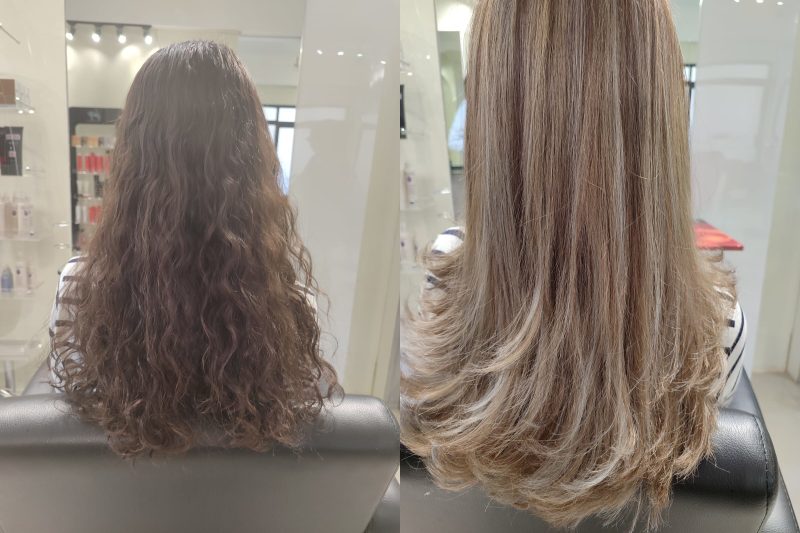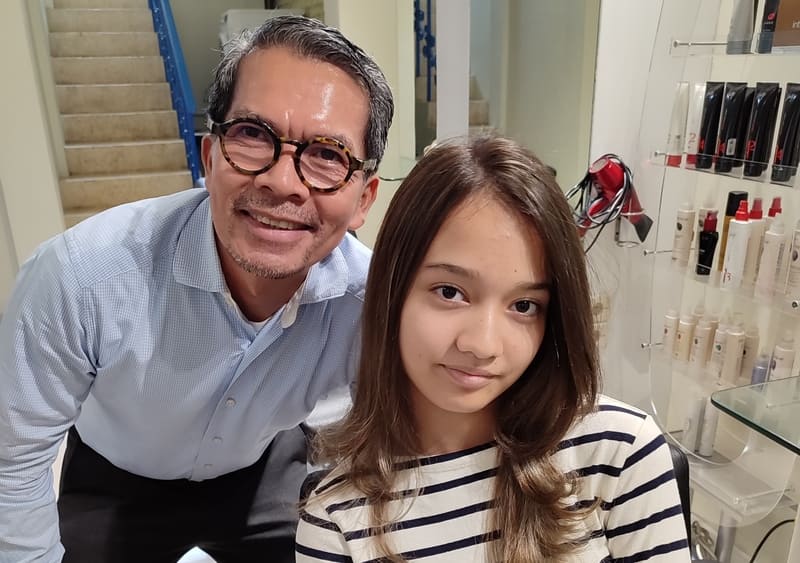The proprietor of Salon De Marque’s and the hair product line GOOZER shared his journey (so far) and why hairdressing should be considered a form of art.
It is now summer, which means this is a perfect time to shake up your hairstyle and, perhaps, proudly showcase a different side of you. Nonetheless, to make such a bold move, you may need the best hairdresser to understand your vision and give you that necessary push — a skilled, knowledgeable, and wise hairdresser such as the legendary Christopher. On the 28th of May, Indonesia Expat had a chance to get to know more about Christopher as the latter shared his journey (so far) as a top hairdresser, why hairdressing should be considered a form of art, and the importance of human connection in manifesting what the client wishes for.
Hi, Christopher. Can you tell us the story of when you first found your calling in all thing’s hair and beauty?
It was very strange, actually. I was a ballet dancer as an adolescent. They would always do my hair and makeup whenever I was about to perform, and I found that very interesting. At the same time, though, I was the type of person who did not enjoy going to school. People said that I was smart, but I wasn’t all too keen on studying in an academic sense. So, once I finished high school, the first thing that popped into my head was, “Why not enrol at a hairdresser school?” I trained under British hairstylist Vidal Sassoon himself in London before he moved to Hollywood later.
Considering you are a trained hairdresser; do you believe hairdressing is a ‘skill’ or an ‘art’?
Of course, hairdressing is an art. For example, you could learn how to cut hair, make the bob line, et cetera. However, when you see hairdressing as an art, you would be able to see that the bob line should flatter the client’s cheekbones and such and such. Hairdressing is something you must study first and foremost, but then, you turn what you learn into a work of art. If you’re not an artistic person, it wouldn’t work.
From your experience thus far, what do you believe defines a ‘good hairdresser’?
Look at it this way. In European countries, one must study for at least three years before one becomes a hairdresser. But here, in Indonesia, one can immediately become a hairdresser after, let’s say, only three months of training. I respect that, but I personally believe that in order to become a good hairdresser, you have to study properly and really well. And you can notice that the best hairdressers in Indonesia are the ones who have pursued training or gone abroad specifically to study the craft.
You cut your teeth as a hairdresser in the mid-80s and the 90s in the United Kingdom and Europe. What was that experience like? And what was the ultimate lesson from that experience that you found influential or transformative for you as a hairdresser?
I commenced my professional career in London back in 1986. Afterwards, after I made a name for myself as a hairdresser and hair colourist there, a certain big company hired me to work in Paris. From Paris, they later sent me to Jakarta, but my time in Jakarta wasn’t long because I missed Europe so much. I asked to return to Europe and the company placed me in the Netherlands. Around 1995, I opened my first salon in The Hague, South Holland.
In Europe, even if it were just a quarter-level difference between what the hairdresser does and what the client is asking, the client would not hesitate to make their complaint. I would say the standard is 99% close to perfection, according to what the client wants. That’s not brutal; that’s just the reality. The Europeans know hair, and that means if there were even just a slight deviation from what the client is asking, the client would come back to the salon on the following day and express their grievance. But thanks to that experience, I have a set of knowledge and skills that I can use here in Indonesia.
You first established your business here in Indonesia back in the early 2010s. What led you to that decision?
I was thinking of retiring at that time. But, as it turned out, not working stressed me out. One day, an Italian cosmetic brand asked me to be the face of their product. I later settled in Jakarta and established my first salon in Kemang, South Jakarta. Afterwards, I established more salons, including Salon De Marque’s in Cilandak, while still serving as the face of this Italian cosmetic brand. It’s also here at Salon De Marque’s where I train all my staff and hairdressers.
You’ve also established your very own hair product line called GOOZER. What can you tell us about it?
The name GOOZER was inspired by the Dutch word “gozer” which essentially means “a man who can do everything”. Hence, the name of the brand basically reflects who I am as a hairdresser. Initially, the idea was to produce hair products that hairdressers in Indonesia could easily use at their respective workplaces. Not all hairdressers in Indonesia have had the chance to properly study hairdressing, so I felt encouraged to create hair products that are simple, easy to apply, and help the hairdressers achieve what their respective clients wish for.
Approximately 90% of GOOZER products cater to women, such as hair colour, shampoo, and other hair treatment-related products. Until today, GOOZER products have been manufactured in Italy and China, but I am currently in negotiations to have these products manufactured here in Indonesia. Hopefully, we can have our own factory by this year or next year.
Now I’m curious — when you cater to a client that you have met for the first time, what is the first thing that you notice?
I can see the client’s character and personality from their gestures towards their own hair. You can tell the client’s level of confidence from their initial hairstyle. There’s something psychological about how you style and treat your own hair.
I believe that no matter how technically skilled you are as a hairdresser, establishing a human connection with the client is the most important element of your job. As a hairdresser, you only have a few hours to get your job done, and when you see your clients looking morose, you have to ask them whether they are okay and engage them in a heartfelt conversation. Sometimes, to achieve the best hair possible, the client must also address and let out their anxieties. But if the client does not wish to talk, as their hairdresser, you must respect that as well.
Now that it is summertime and the weather can get really hot, what advice can you give to everyone in Jakarta when it comes to treating their hair and maintaining its health?
Of course, I would advise them to use the GOOZER products. Our products do not stop at colouring one’s hair to their liking; our products also exist to take care of one’s hair and maintain its best condition.
Last but not least, how can our readers reach you?
You’re welcome to reach out to me via Instagram @christopher_vitalitys.
Special promo – Get 1 voucher for every IDR 1,000,000 spent on colour, highlight, or keratin treatment




